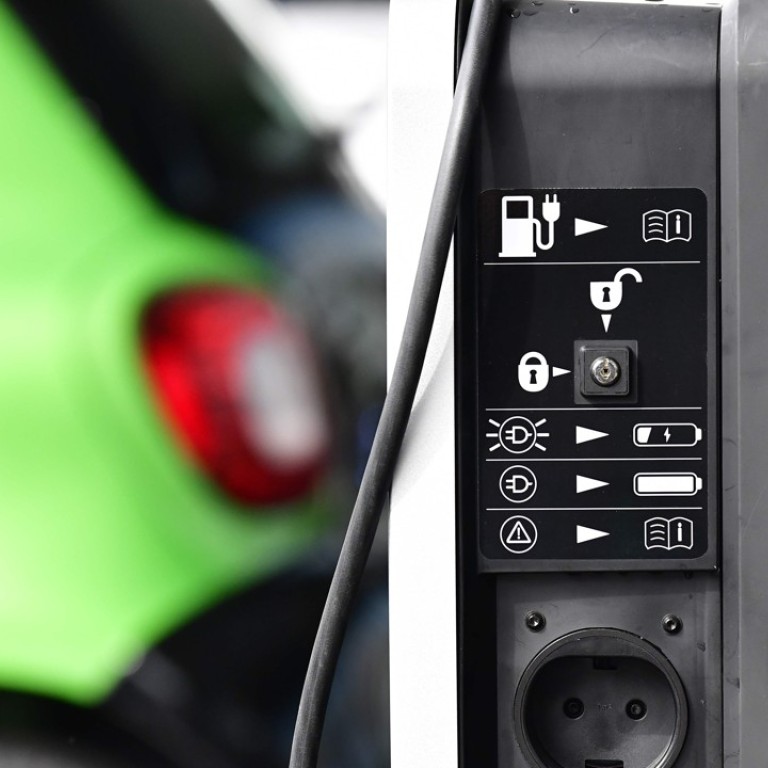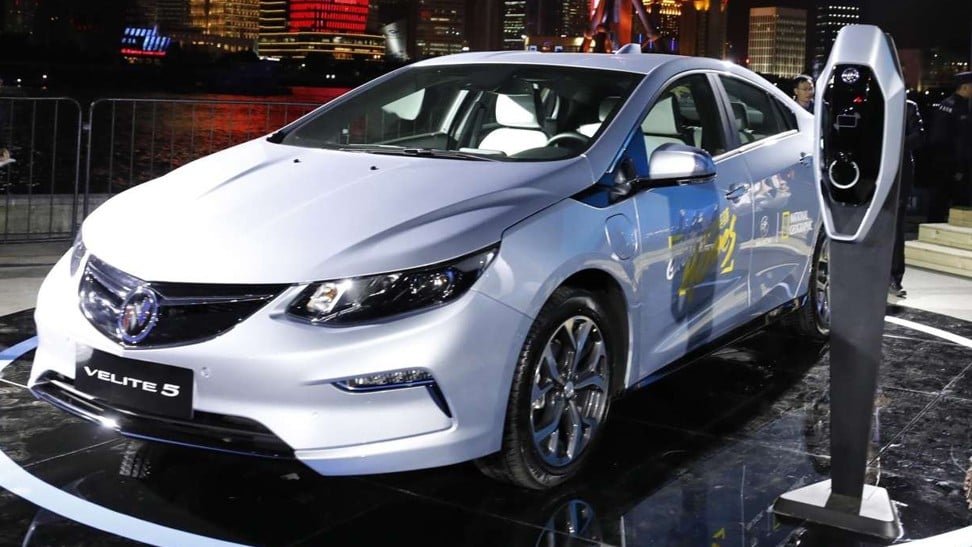World’s biggest carmakers finally plug in to electric

Volkswagen’s leaders have approved a five-year spending plan that aims to further the German carmaker’s goal of transforming itself into a leading force in electric cars.
The move by Europe’s largest carmaker by unit sales, which was announced last Friday, will see it spend more than €34 billion (US$40 billion) on electric cars, autonomous driving and new mobility services by the end of 2022.
Several carmakers have unveiled plans to mass produce electric vehicles, spurred on by government crackdowns on engine emissions, falling battery costs and an increasing range of electric cars.

Here are carmakers’ plans for a technology that has played only a marginal role until now:

Tesla Motors
Next year could be make or break for the US pure-play electric vehicle maker, which just launched its first mass-market car, the Model 3.
The company made only 260 Model 3 cars in the third quarter because of what it called production bottlenecks. It had planned to build more than 1,500.
This month it pushed back its target for volume production by about three months, saying it was difficult to predict how long it would take to fix production bottlenecks.
It now expects to build 5,000 Model 3s per week by late in the first quarter of 2018, instead of its original target date of December.
On Thursday, the company also unveiled a prototype electric big-rig truck, the Tesla Semi, which it expects to start producing in 2019, and showed off a Roadster electric sports car, which it says would be available in 2020.

Toyota
The Japanese carmaker says it wants all its vehicles to be zero emission by 2050. It has championed its hybrid Prius and has focused much of its efforts on hydrogen vehicle technology.
However, it says it is not “anti-EV” and is spending heavily on technologies such as the solid-state battery, which has the potential to cut the cost of making electric cars and which Toyota is racing to commercialise by the first half of the 2020s.

VW Group
Spurred on by its diesel emissions crisis, Europe’s biggest carmaker says it will roll out 80 new electric cars by 2025 across its group brands, which include Skoda, SEAT and Audi.
VW Group is aiming for two to three million electric vehicle sales by 2025.
All its models will have electric versions by 2030. The first big test will be the I.D., VW’s answer to Tesla’s Model 3.

Renault-Nissan
The French-Japanese alliance so far leads the deployment of modern electric cars – 490,000 to date – thanks to the top-selling Nissan Leaf introduced in 2010 and Renault’s Zoe subcompact launched two years later.
Twelve new pure-electric models will be on the road by 2022 as the alliance seeks to defend its head-start.
Nissan has sold 250,000 Leafs and is aiming for a fifth of its vehicles to be zero emission by 2020. But the group is also hedging its bets by developing the hybrid petrol-electric Nissan Note e-Power.

General Motors
The American carmaker plans to launch a new family of electric vehicles in 2021 that will cost less to build and make a profit, Mary Barra, its chief executive, told investors last week.
She says GM aims to be selling a million electric vehicles a year by 2026, many of them in China.
GM still makes most of its profits from selling big, petrol-powered trucks and SUVs to Americans. Its electric Chevrolet Bolt is seen as a serious contender for Tesla.

Ford
The US company plans to invest US$5 billion in electric vehicles by 2022 and introduce at least 13 electric or hybrid models worldwide in the next five years, including a small SUV built in its home state of Michigan offering an estimated range of 186km on one charge.
It is cutting spending on future internal combustion engines, but still plans for a third of vehicles to have internal combustion engines by 2030 – the year some European governments have proposed banning petroleum-fuelled cars.
Ford has not given any electric vehicle production targets.

Daimler
The company is investing €10 billion in electric and hybrid technology and is preparing to launch the EQ electric car.
It aims for 100,000 annual electric car sales by 2020.
By 2022, Mercedes plans to offer an electric version of every model it sells, with a total of at least 50 electric or hybrid models for sale.
The Smart brand will stop offering combustion-engined variants altogether in 2020.

BMW
That changed in September when the German manufacturer vowed to achieve mass production by 2025 with 12 fully electric models, with a range of up to 700km.


Fiat
Sergio Marchionne, the company’s chief executive officer, was a vocal sceptic of electric cars and their high battery costs for years.
He once told people not to buy the electric Fiat 500e because he was losing money on each car.
However, in July he told analysts that he had “joined the rest of the crew”, a change of heart driven partly by the diesel emissions crisis.
For now, his most concrete plans involve Fiat Chrysler’s luxury, low volume brand Maserati which he wants to be half electric by 2022.

Volvo Cars
All Volvo car models launched after 2019 will be electric or hybrids, the Chinese-owned premium manufacturer said in July, making it the first major traditional carmaker to set a date for phasing out vehicles powered solely by the internal combustion engine.

Volkswagen is latest major carmaker, after Renault-Nissan, BMW and Daimler, to plan mass production of electric vehicles, which play only a small role so far